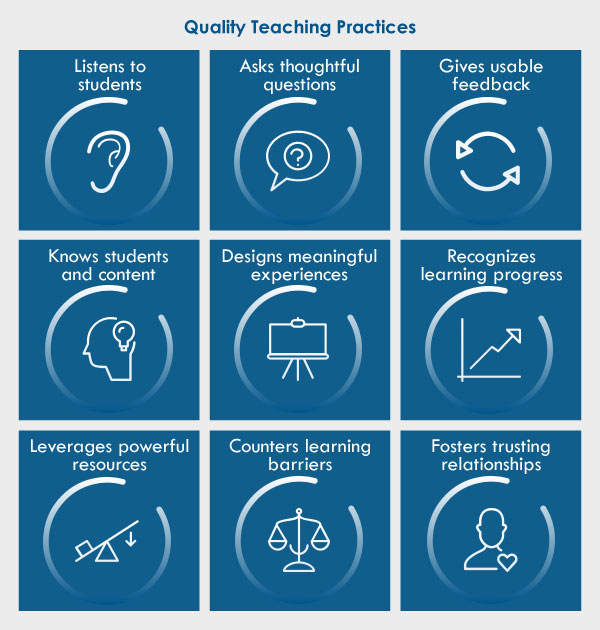
Center for Equity Leadership
CTAC believes educational equity is the right of all students to thrive as members of vibrant schools and communities.
CTAC is committed to advancing educational equity by addressing the institutional policies, practices, and decisions which create unequal outcomes. We support strategically reallocating and reinvesting resources to students most in need. Taking actions to build equity means redefining relationships and refocusing partnerships between institutions and communities.
The schools and communities we serve are committed to addressing the historical marginalization of groups based on race, ethnicity, and native language. We draw on our extensive experience in both education and community development to help our partners turn the intent of their commitment into changes which directly address inequities. Our shared success is demonstrated through equity of opportunities and results.
Our Approach
The success of our partners makes clear—equity is more than a goal or a mindset; it is a pathway to opportunities and results.
Here’s how we help our partners to get there:
Target the Right Topics. CTAC assists districts and communities to uncover and focus on the causes, instead of the symptoms, of what hinders student learning and equitable systems. We help our partners redefine problems, probe significant questions, and ensure that equity of opportunities and results becomes the central strength of their school system.
Lead for Equity. CTAC assists inspired leaders to assess the potential for change, develop innovative solutions, and make the bold and strategic decisions needed to support a new direction.
Build a Constituency for Change. CTAC guides our partners to work toward equity with the whole community in mind. We assist in building a constituency for change and moving thinking forward. We aid our partners in bringing forth sustainable change embraced by the entire community.
Our Experience
Equity has always been at the core of CTAC’s work. For over 40 years, CTAC has demonstrated success in assisting states, districts, and communities to improve student learning and address root causes of inequity. Drawing on our national experience in education and community development, we strategically engage the whole district and community in advancing equity.
- Creating unprecedented pathways. CTAC assisted the Cambridge Public Schools to implement a landmark desegregation plan. This community-wide effort was hailed as the most successful process of school desegregation in the nation, leading to increased student achievement and community buy-in.
- Achieving results for all students. In the Christina School District, CTAC provided technical assistance for a comprehensive school reform which resulted in student achievement increases across the board with the most significant improvements seen in the scores of African American and Hispanic students.
- Catalyzing community revitalization. CTAC helped convene and provided assistance to the nationally acclaimed Dudley Street Neighborhood Initiative, the broadest based revitalization of an urban neighborhood in the United States. Several thousand residents and numerous organizations focus on affordable housing, economic development, and service coordination.
Our Services
CTAC builds the capacity of our partners to increase equity, opportunity, and success for all students. CTAC’s helps schools, districts, and community organizations to transform their policies, practices, and systems. Our key equity services include:
Independent Lens on Equity
- Conduct quantitative and qualitative analyses to identify gaps in equity and their causes
- Build a constituency with a common purpose and language around equity
- Recommend pathways and develop the capacity to address identified gaps
- Equity-Driven Leadership
- Diverse and Effective Teachers
- Rigorous and Relevant Curriculum and Instruction
- Inclusive School Climate and Culture
- Meaningful Family and Community Partnership
- Intentional Resource Allocations
CTAC uses interviews, surveys and analysis of relevant documents and data to examine the performance of district systems that support student achievement. We then identify needed improvements to support students and educators. The ARC examines district capacity to provide effective leadership in improving instructional practices, strengthening school leaders and school improvement planning, and reducing student achievement performance gaps—while concurrently raising the performance of all students.
The assessment examines key questions such as:
- How is academic progress for all students supported?
- What conditions and factors promote or impede success of students and educators?
- What are the critical next steps for addressing these conditions and factors?
- What is needed to expand the organizational capacity of the school district?
CTAC’s Professional Development Audit analyzes both quantitative and qualitative data to understand the impact of professional development on student achievement, as well as on the practices and perceptions of educators.
We customize the audit to meet the needs of the district, targeting the programs, grades or subject areas the district wants to examine. During the audit we examine the impact of professional development on equitable student achievement, classroom practices, human resources, and financial allocations.
CTAC has conducted professional development audits in school systems across the country, including such leading districts as Duval County Public Schools in Florida, Henrico County Public Schools and Prince William County Public Schools in Virginia.
CTAC’s Community Equity Audit follows an iterative process:
- Conduct outreach to the broader community and build a constituency to ensure organizations are accountable to equity goals
- Perform data analyses to identify inequities and their causes
- Provide recommendations and pathways for change
Comprehensive Systems Change
- Develop the PreK-12 vision for STEM education
- Engage leaders and stakeholders
- Develop rigorous curricula and assessments
- Produce relevant learning resources and supports
- Support highly effective STEM teachers
- Engage students actively in STEM-relevant learning
- Conduct actionable program evaluations
CTAC uses an evidence-based design process to spark local innovation. Our multi-phase process for achieving success in schools includes:

The design process is driven and evaluated by its impact on student learning. With CTAC’s assistance, our partner schools and districts are:
- Engaging representative voices to set the strategic direction
- Placing learning at the core of the design
- Focusing on the causes, not the symptoms, of underperformance
- CTE Equity Audits. Creating equitable access and outcomes in CTE requires districts to be able to identify disparities and plan actions to address the findings. CTAC’s Equity Audit analyzes the district’s CTE landscape. We build the capacity of our partners to understand the data, uncover the root causes of inequities, and develop strategies for advancing equity in their CTE initiatives.
- CTE Program and Curriculum Alignment. CTE offerings often span multiple grade levels and programs; they can differ depending on factors like school type and target audience. CTAC guides our partners in ensuring equity and alignment across secondary, postsecondary, and adult programs in the career pathways system. We further support the development of program review guidelines and analyze curriculum and materials to suggest improvements and provide action steps.
- Strategic CTE Partnerships. Successful CTE programs engage local communities and businesses as equal partners. We help districts to develop effective communications and partnership strategies. We provide expert facilitation to convene and coalesce executives of non-profit organizations and businesses around shared CTE goals. We also help districts ensure that these partnerships are sustainable.
- Ensuring the voices of the whole community are heard, especially those often underrepresented
- Facilitating and coalescing internal and external groups
- Developing two-way communication strategies
- Providing consistent messages at all levels of the district
- Using social media as a positive force
- Anticipating and preparing for looming challenges during the school year
- Supporting organizational cohesion and staff well-being when confronting ambiguity
- Connecting research to practice to ensure a focus on instruction and student learning
- Developing executive leadership skills
Effective Teaching and Instructional Leadership
CTAC’s Principal Readiness and Effectiveness Program (PREP) supports and grows school leaders to ensure leadership success and sustainability by focusing on student learning and professional growth. PREP is:
- grounded in the Professional Standards for School Leaders (PSEL, 2015)
- customizable and adaptable to the needs of each client
- shaped by the needs of the school leader through differentiated learning experiences
- personalized through job-embedded activities and executive coaching
- Strategic, Ethical and Professional Leadership
- Equity Focused Culture
- Effective Teaching in Every Classroom
- Professional Growth for All
- Family and Community Engagement
- Systems and Processes
Instructional Leadership
Excellent principals take an active role in shaping the instructional practices of their schools. CTAC helps our partners build the capacity of principals and other frontline educators to become strong instructional leaders. We assist by:
- Developing principals who can identify and advance exemplary pedagogical practices
- Building Instructional Leadership Teams who guide instructional practices at the schools
- Helping districts to replicate the success of their most impactful leaders

- Enhancing everyday interactions to maximize impact. These three key teaching practices engage students as active participants in their learning.
- Building an instructional model around formative, academic, and social and emotional assessment. These three key practices make up the core instructional model.
- Creating a context for equitable teaching. These three key practices set the foundation for both student-teacher interactions and the instructional model.
- Customizing the modules and training to meet the needs of the school or district
- Providing professional development on the high leverage teaching practices that can be applied in any classroom
We assist our partners in creating and improving leadership pipelines by:
- Analyzing the current organizational state with an emphasis on hard-to-staff schools
- Vitalizing the district strategy for talent recruitment and retention
- Engaging teachers and principals in designing and implementing the talent strategy
- Identifying and addressing relevant collective bargaining issues
- Developing career ladders aligned to the evaluation system
